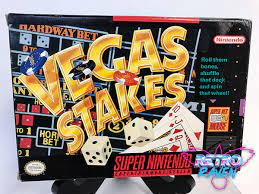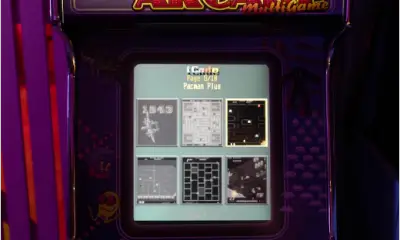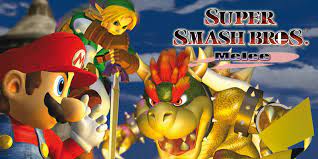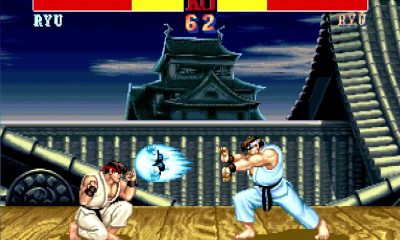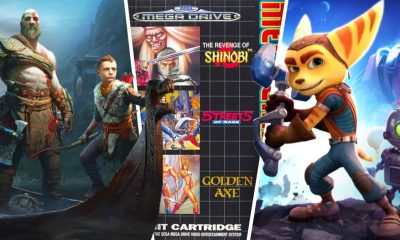The 1980s and 1990s were transformative decades that witnessed the rise of a new cultural phenomenon: video games. While these games were initially confined to arcades and early home consoles, they quickly captured the imagination of a generation and left an indelible mark on pop culture.
The cultural impact of retro games during this period was profound, shaping not only entertainment but also fashion, music, and even societal perceptions. Moreover, the ripple effect transcends to the modern days, inspiring Golden Tiger Casino games, and fashion alike.

Arcade Revolution and Social Spaces
The emergence of arcade games like Pac-Man, Space Invaders, and Donkey Kong paved the way for a new form of social interaction. Arcades became gathering places where friends and strangers alike could compete, share strategies, and discuss the latest high scores.
This phenomenon led to the creation of a distinct subculture centered around gaming. The iconic sights and sounds of arcades, from the glow of neon lights to the blips and beeps of arcade cabinets, became synonymous with the era.
Influence on Fashion and Aesthetics
The visual aesthetics of retro games made a significant impact on fashion and design. The pixelated graphics of these games influenced not only video game design but also graphic design and fashion trends.
Elements of pixel art found their way into clothing, accessories, and even interior design. The bold, vibrant colors of retro games, often limited by the technology of the time, became a hallmark of the era’s aesthetic sensibilities.
Soundtracks That Defined an Era
The chiptune soundtracks of retro games became iconic musical compositions that still resonate with fans today. Despite the technological limitations of the hardware, composers managed to create catchy and memorable tunes that enhanced the gaming experience.
These soundtracks transcended the confines of the games themselves, becoming a part of mainstream culture. Even today, artists and musicians pay homage to these retro sounds, remixing and reimagining them in various musical genres.
Shaping Narratives and Characters
Retro games introduced characters and narratives that left a lasting impact on popular culture. Icons like Mario, Sonic the Hedgehog, and Link became household names, representing not only their respective games but also broader themes of adventure, heroism, and exploration. These characters became cultural touchstones, serving as mascots for their respective gaming companies and embodying the values of the era.

Pioneering Technological Advancements
The technological innovations of retro games laid the groundwork for the gaming industry as we know it today. Games like Super Mario Bros. and The Legend of Zelda introduced concepts like side-scrolling gameplay and open-world exploration that set the stage for future game design.
Additionally, the introduction of home consoles brought gaming into households, changing the way families spent leisure time and further embedding video games into the fabric of society.
Final Thoughts
Retro games from the 80s and 90s had a tremendous cultural impact. They went beyond entertainment, shaping fashion, music, social interactions, and technology. Nostalgia for this era persists with modern adaptations and remasters captivating new generations. Retro games not only entertained but defined a generation’s identity and left a lasting legacy on pop culture.

- Treasure In Your Attic? The Most Sought-After Retro Games
- Reliving the Golden Era of Gaming with PlayRetroGames.com
- Remembering some of the worst retro games ever made
- Top Picks: The Best Retro Games to Play Online
- Rediscover the Magic: Retro Games Unleashed!
- From 8-Bit to High Stakes: The Retro Gaming Roots of CS:GO Case Battles
- The Best Retro Themed NFL Video Games
- 12 of the Most Influential Chinese-Themed Retro Games
- The Role of Sound and Graphics in Online Casino Games
- The Enduring Appeal of Classic Table Games in Online Gaming
- Why Super Puzzle Fighter Was a Precursor to the Age of Casual iGaming
- Top Online Casino Providers: A New Era in Gambling
- The Evolution of Fast Payouts in Gaming: From Retro Classics to Modern Platforms
- A nostalgic revolution among retro gamers: Migrating to the thrills of online casinos
- The Increasing Role of Apps in Online Gaming
- How Retro Games Are Evolving to Match A More Mobile Gaming Industry
- Retro Game Elements in Today’s Online Casino World
- Hidden Levels and Easter Eggs in Retro Games
- Benefits For CS2 Players From CS2 Armory Pass
- The History Of Gambling In Asia
- Retro Video Game Mechanics in Casino Games
- Most Popular AK-47 Skins in CS2 and Their Prices
- The Psychology Behind Online Gambling: Why We Keep Coming Back
- Casual vs. Risky Plays: Balancing Fun with Crash Games and Retro Slots
- From 80s Arcades to Online Casinos: How Retro Video Games Inspired Modern Casino Games
- Why Poker Has Stood the Test of Time
- Tower.bet Loyalty Program: How to Earn Extra Bonuses
- What is the appeal of playing retro games?
- How Live Streaming is Revolutionizing Sports Betting
- Classic Retro Casino Slots
- Esports Tournament to Look and Bet On
- The Impact of Online Gambling on Traditional Casinos
- How to Choose the Right Casino Game for You: A Personality-Based Approach
- Exploring the Impact of Retro Gaming on Modern Game Design
- What Retro Slots Are Available at Online Casinos?
- Overview of Buying WoW Boosts for DF Mythic Dungeons
- Why Are Retrogames Popular?
- Pixelated Nostalgia: Ontario’s Retro Arcade Revival
- The Greatest Retro Gaming Moment In Movie History
- Nostalgia and Retro Revivals: The Resurgence of Classic Casual Games
- Best Dota 2 Carry Heroes in 7.35d
- The Best Video Game Remakes & Remasters of 2024
- How Online Gaming Can Impact Your Mental Health Positively
- History of casinos: When and who invented casino?
- Why Retro Games Are Still On Trend In 2024
- Best Online Casino Games in Retro Style
- How to Find People to Play Games With: Guide to Finding Your Gaming Friends
- The Growing Trend of Sports Betting in Online Casinos
- Mobile Gambling in 2024: Navigating the Digital Future with PokieSurf
- Dive Into the Exciting World of Crypto Esports Betting in 2024
